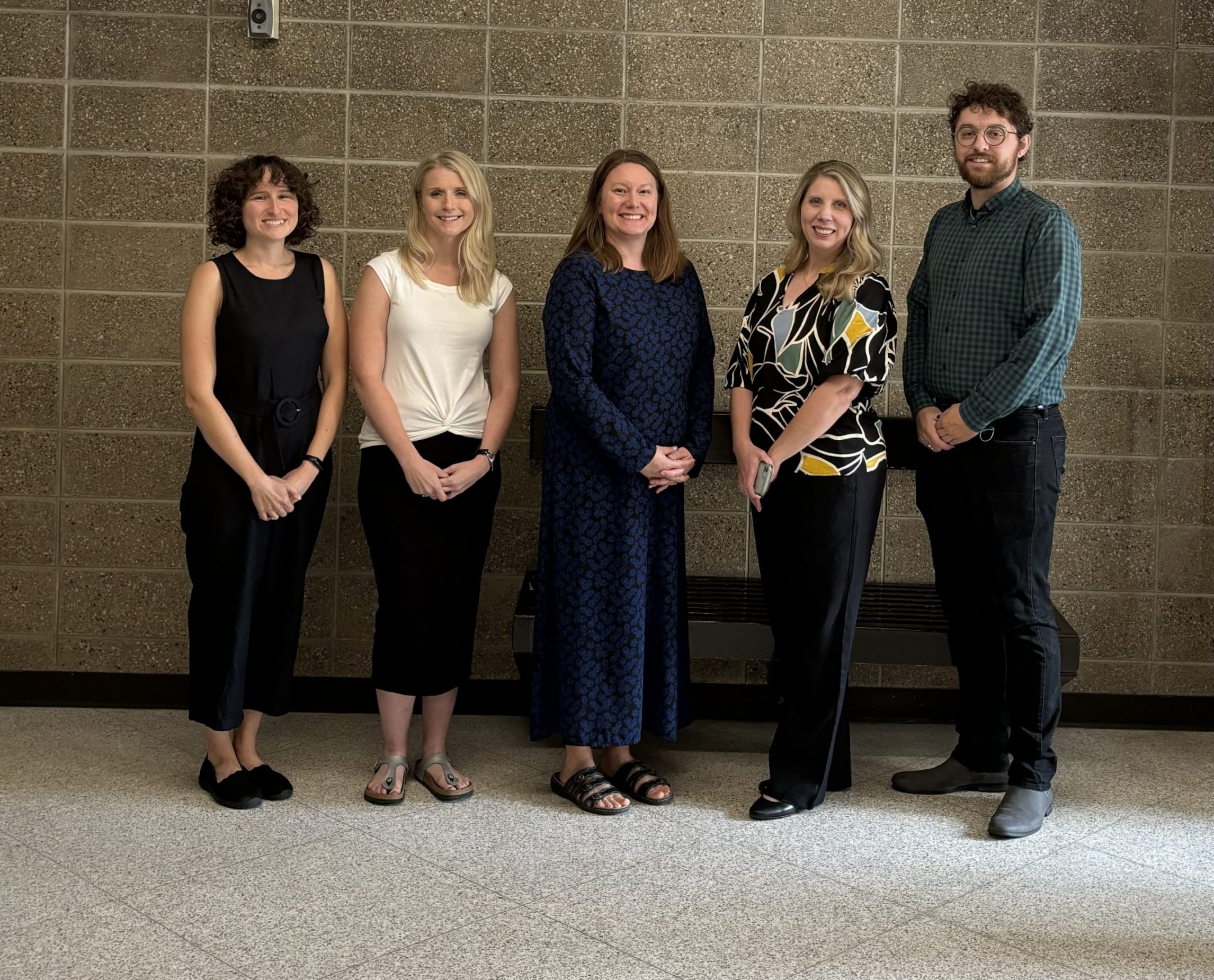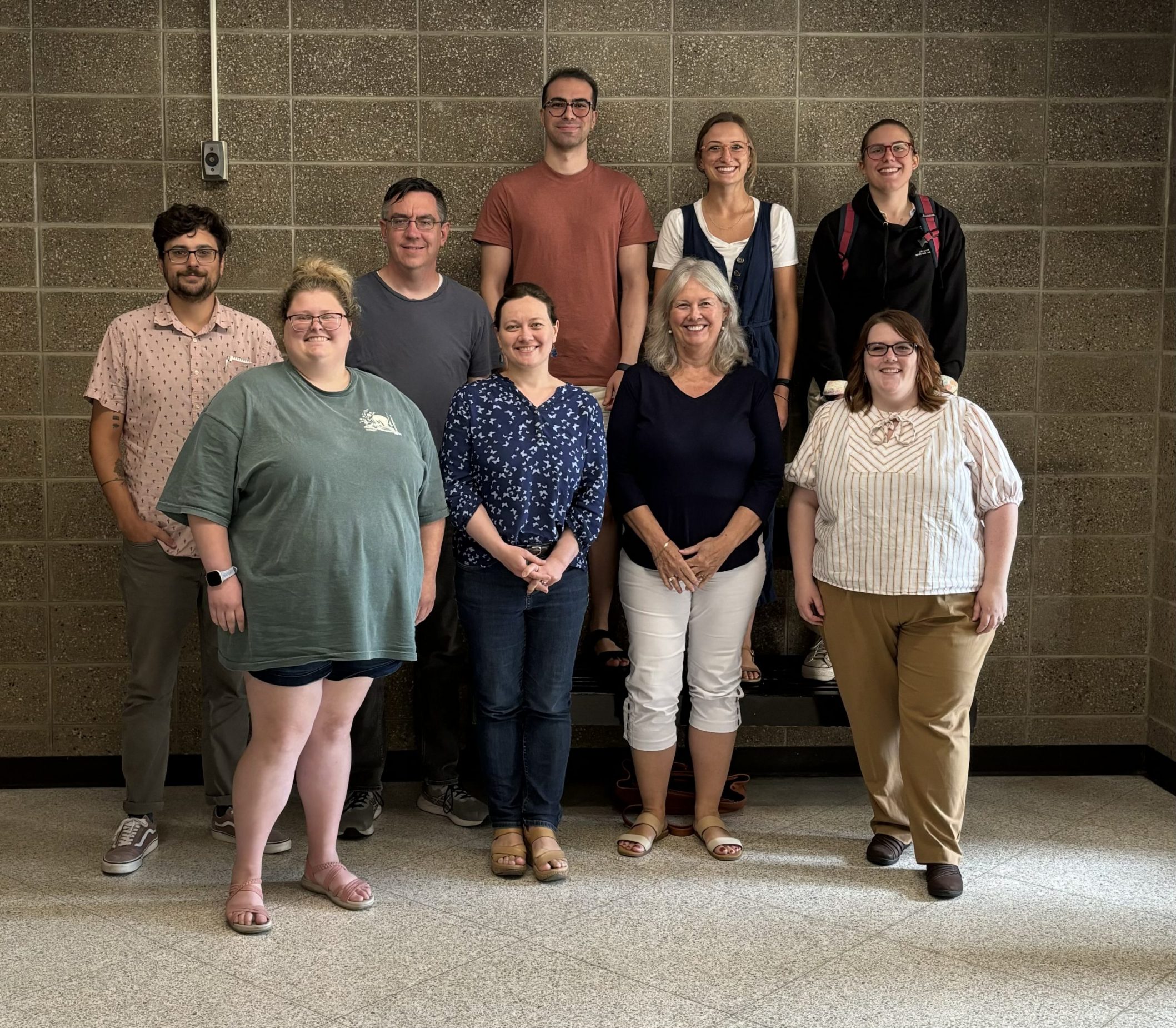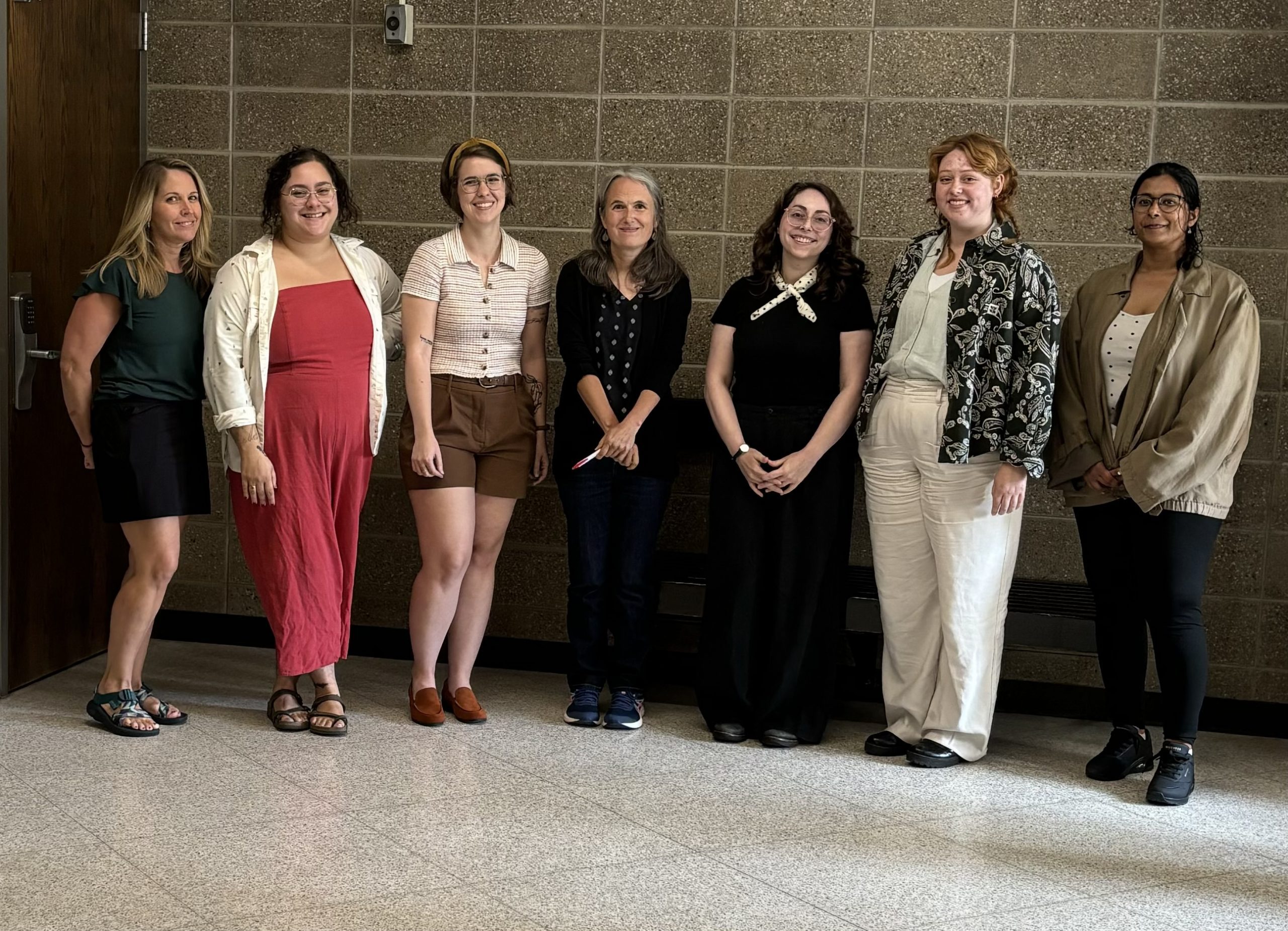Building critical AI literacy and strengthening curriculum through community
Author: lskramer
Author: lskramer
Funded by a Miller Faculty Fellowship, and led by Lesley Bartlett (Director of ISUComm Foundation Courses), Amy Walton (Assistant Director of ISUComm Foundation Courses), and Brenna Dixon (Learning Communities Coordinator), the ISUComm Foundation Courses Redesign Institute convened over Summer 2024 to design assignments and learning activities for English 1500 and English 2500 that promote communication excellence and rhetorical awareness, including AI-awareness. The Redesign Institute, composed of the leadership team, fellows who generated materials, and consultants who peer reviewed materials, met over the month of June synchronously and asynchronously to design an invigorated curriculum for the ISUComm Foundation Courses Program; guest speakers Abram Anders (Iowa State University) and Christopher Basgier (Auburn University) also contributed to the work of the Redesign Institute.



On the first day of the Redesign Institute, there was a charged energy in Marston Hall Room 2300, an anticipation for the work and curiosity-driven generation that would follow over the next month. The fellows began their work by designing activities related to relentless welcome. In “Chapter One: Visions of the Possible” in Relationship-Rich Education, authors Peter Felten and Leo M. Lambert introduce the concept of relentless welcome, a pedagogical philosophy geared toward establishing an inviting, open, and inclusive classroom space for students, as well as honoring and engaging with the individual experiences of each student (Felten was invited to Iowa State University’s campus through CELT this past spring, where he discussed the book and its benefits for instructors). Relentless welcome can be as simple as welcoming students by name as they enter the classroom, encouraging students to contact you for questions or attend office hours, or getting to know your students through introductory activities. Later in the day, Abram Anders provided a guest lecture and hands-on workshop on generative AI, which involved testing the capabilities of Microsoft Copilot, analyzing AI generated text compared to student work, and imagining how AI could be integrated into classroom activities as a process tool. Keeping in mind relentless welcome and its goals to invite students into the classroom, as well as the emergence of generative AI as a tool, fellows began their work on designing new interpretations of ENGL 1500 and 2500’s major assignments: rhetorically analyzing documentaries, staging multimodal designs as a museum exhibition, and crafting micro-essays were a few of the new ideas proposed at the Redesign Institute.
With newly structured major assignments, the fellows continued their work on the second day by shifting their focus to lesson planning and smaller assignments, calibrating and scaffolding unit progression to help students learn drafting processes, creative writing exercises, interview etiquette, and more. As the day drew to a close, fellows were also encouraged to begin integrating AI into their learning activities as a tool, evolving course work to consider new technologies and tools alongside social media, multimodality, and unique topics and subjects. This work advanced further on the third and fourth days of the Redesign Institute when Christopher Basgier (Director of University Writing at Auburn University and author of the Substack Prose and Processors) visited to guest lecture on the history of innovative writing tools, the excitement of teaching new writers as they enter the post-secondary academic world, and the importance of critical AI literacy. Instructors were invited to consider their own experiences with constantly developing writing technologies, read multiple examples of essays written by AI to understand generative AI’s limitations and also the strength of student work, and discuss how AI can provide accessibility for language learners and learners with disabilities. Basgier’s guidance, and the fellows’ curiosity and ingenuity, lead to a productive and collaborative afternoon of designing and showcasing curriculum materials and resources for the ISUComm Foundations Courses teaching corps.
Over the following weeks the Redesign Institute reconvened in a digital roundtable format to peer review and workshop with a strong team of consultants who offered their own unique perspectives on AI integration and critical AI literacy. After this initial review period, the fellows met with the leadership team during the final week of June to revise their alternate assignments and learning activities, refining classroom tools and ways for instructors to integrate AI in approachable ways. To close out the Redesign Institute, fellows were invited to write notes to Foundation Courses instructors who are teaching this fall but didn’t participate in the Redesign Institute, which can be found in this newsletter.
Through curiosity and collaboration, the Redesign Institute is the newest step forward for the ISUComm Foundation Courses Program, which consistently adapts to new technologies and fresh ideas while still maintaining the core values of these vital composition courses.
